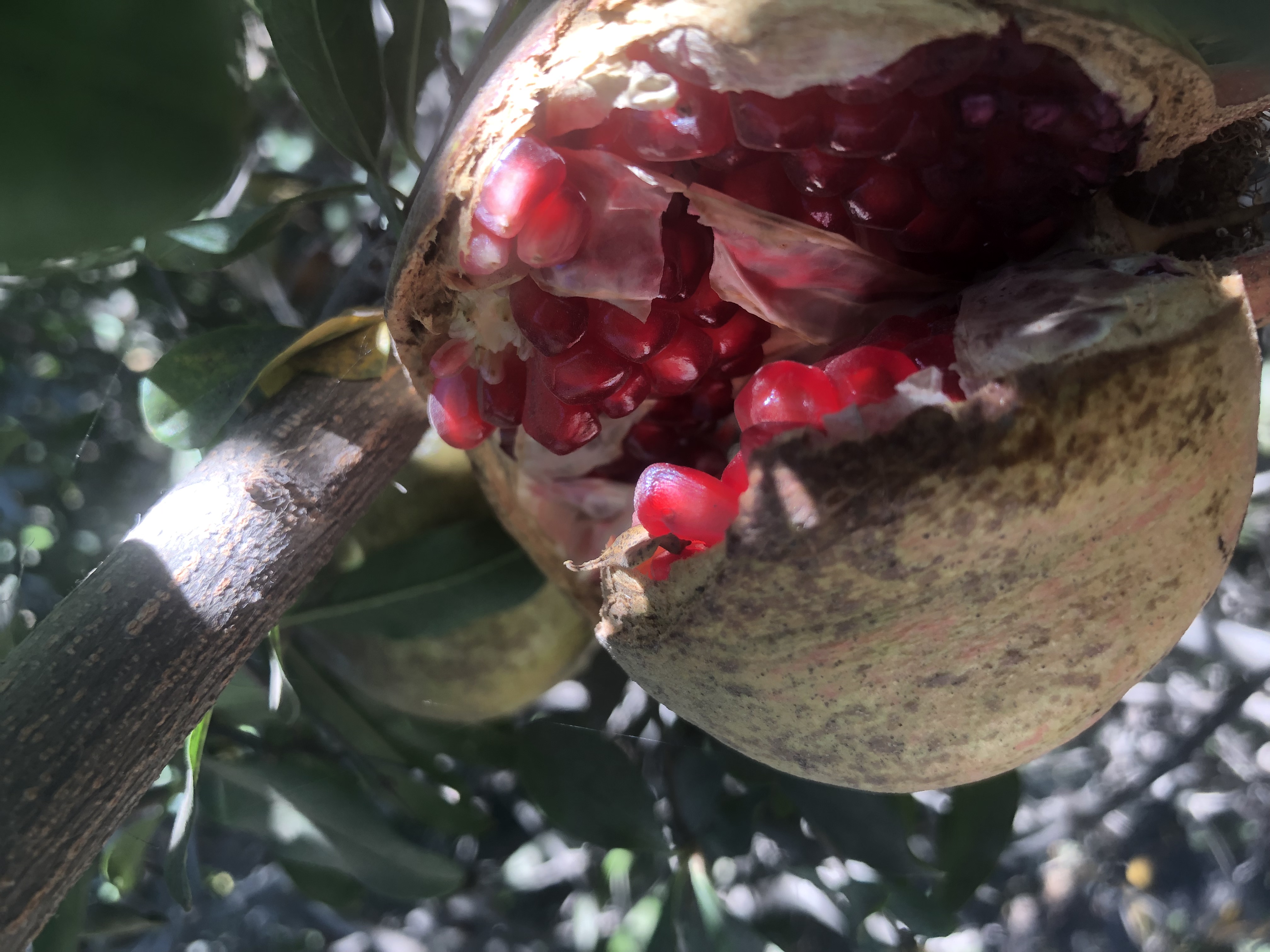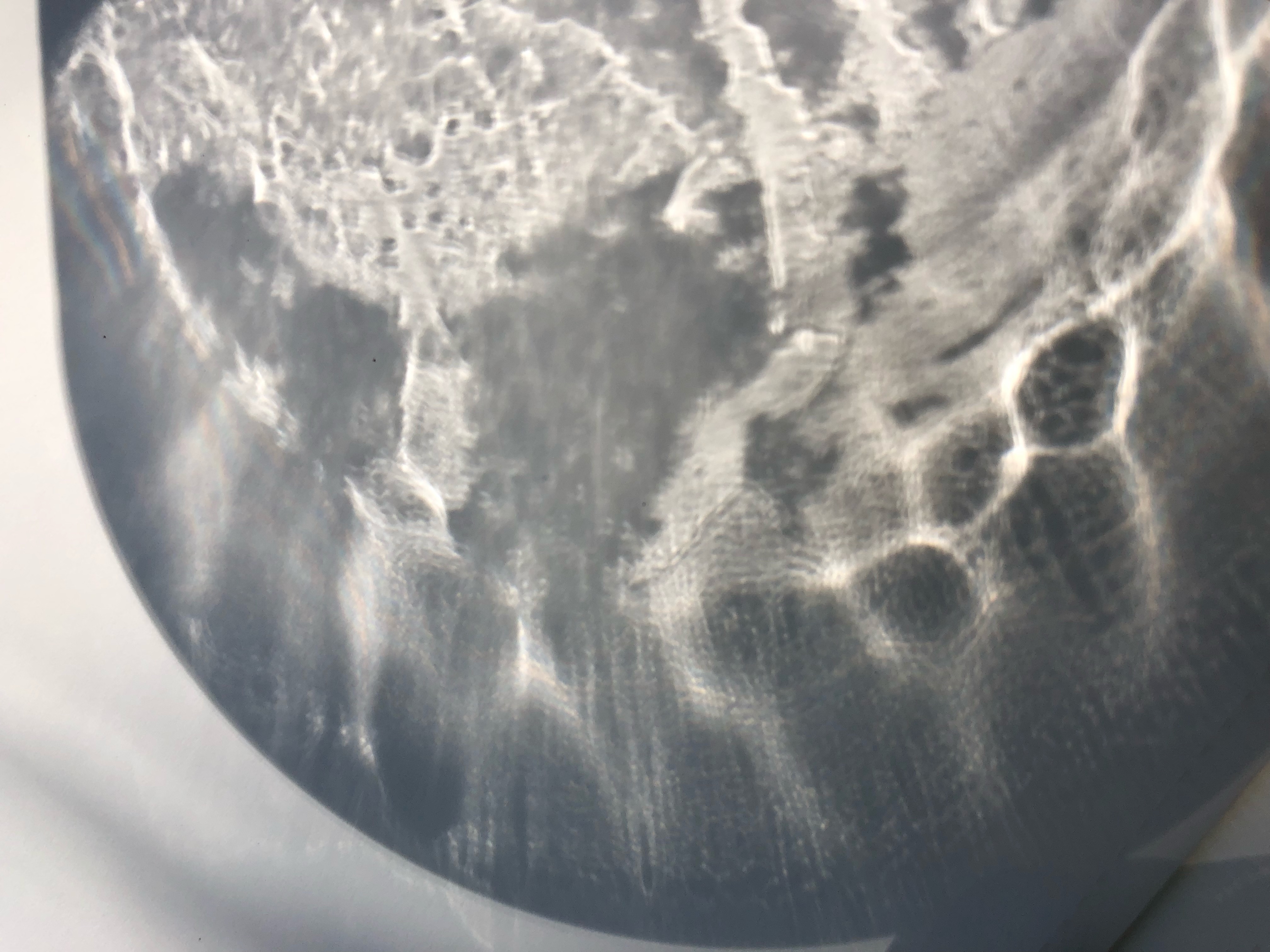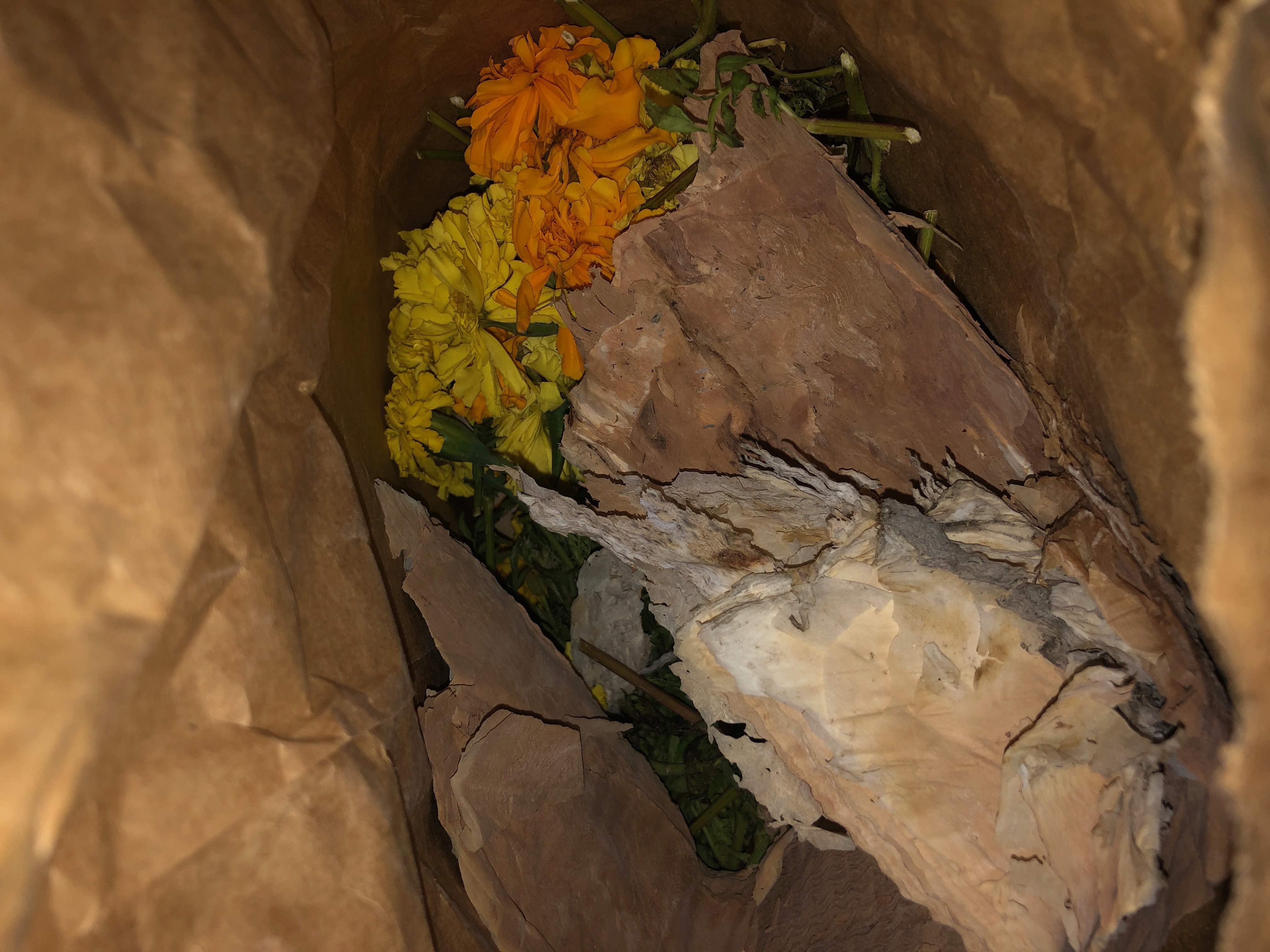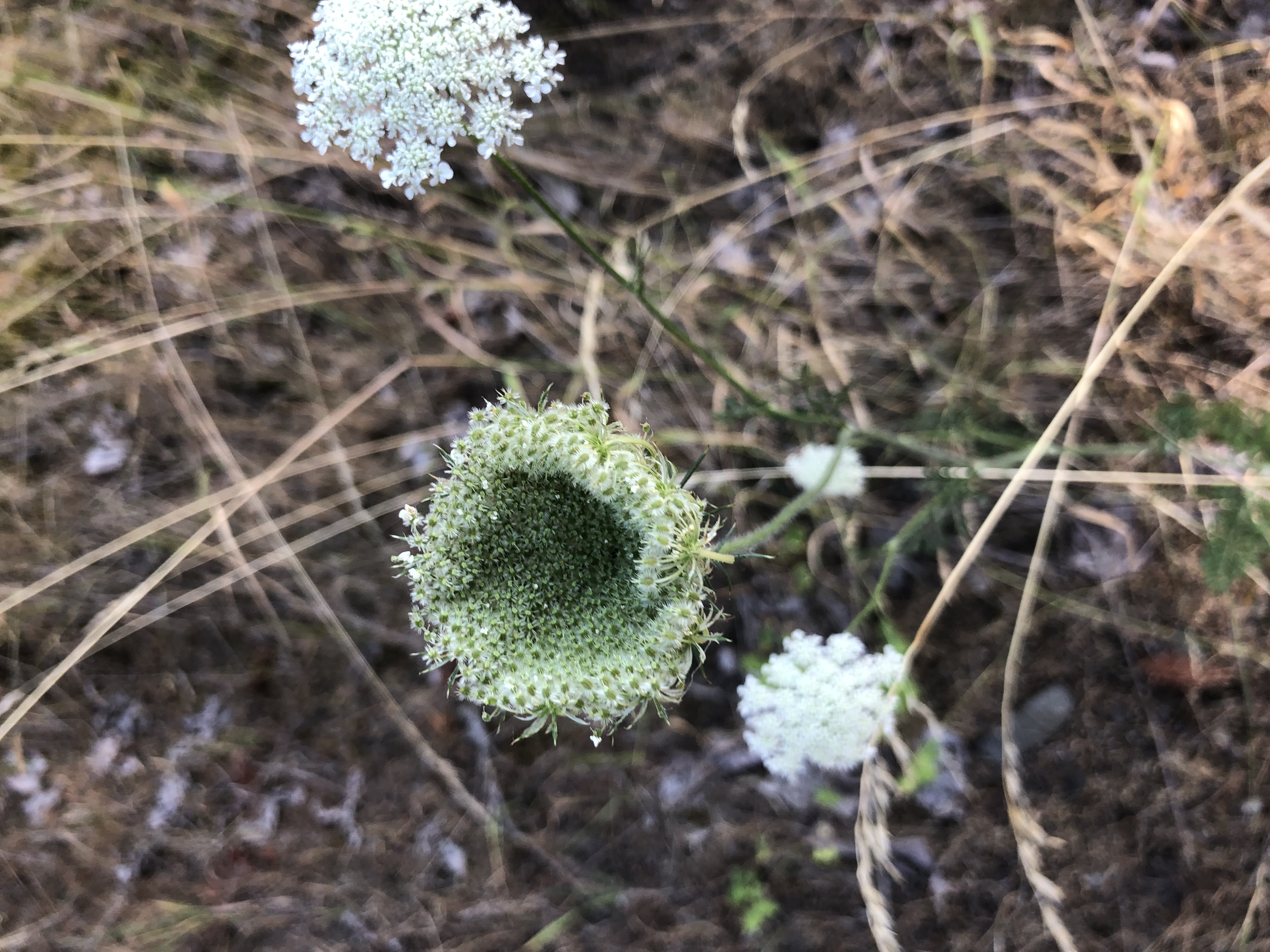Boxes and Lines (Mobile Home Retirement Community)
Ariel Hoage

She sits with her crossword puzzles each day, all day; omnibus books stacked like old calendars, half full of handwritten memories, half remembered, largely indistinguishable. The themes are superfluous. Her children worry that she needs more to occupy her time, that she needs to change out of her nightie (and god knows the Walden Pond gift shop tee I bought her isn’t going to fly, either). I wonder if they spill into her sleep, if her dreams are but numbered hints to transcendence.
Ceramics balance her shaky hands, all squiggly lines and indentations. My desire to be a hermit has always been more reactionary. All utopias are (and how frighteningly domestic). Distinguishment comes with the danger of extinguishment, or so I gather. The birds in the oleander bush sing in concordance. Only those with a conviction use pens these days. Or crystals, like the man who leaves his incantations on her doorstep with the morning paper. Mine is always on the tip of my tongue.
When I was eleven, I borrowed my mother’s copy of Skinny Bitch (or maybe it was recommended to me). I don’t remember much save for the horrors of factory farming, calves torn from the warmth of maternal bodies, the out-of-sight-but-not-unreachable perfection hidden inside of every fat woman. The prescription for sublimation is mostly peanut-based. The dizziness is all too protestant.
The neighbor wears a wool sweater and a paperboy cap in the heat of triple digits. He walks the cul de sac once a day, and takes another lap in his motorized wheelchair, around lunch hour, like clockwork. The oranges from his tree spill onto the asphalt like errant children. Was it Kant who always left the house at the same time? The end of the road opens up ino a pasture full of star thistle, though the cows are already gone by the summer. I wave to him as he passes the water tank, and I imagine what it’s like to be halfway home, yet still a lap and a half to go – with or without fear of stumbling. To be, always on the verge of the next crack, obscured by sidewalk chalk and dandelions.
Ceramics balance her shaky hands, all squiggly lines and indentations. My desire to be a hermit has always been more reactionary. All utopias are (and how frighteningly domestic). Distinguishment comes with the danger of extinguishment, or so I gather. The birds in the oleander bush sing in concordance. Only those with a conviction use pens these days. Or crystals, like the man who leaves his incantations on her doorstep with the morning paper. Mine is always on the tip of my tongue.
When I was eleven, I borrowed my mother’s copy of Skinny Bitch (or maybe it was recommended to me). I don’t remember much save for the horrors of factory farming, calves torn from the warmth of maternal bodies, the out-of-sight-but-not-unreachable perfection hidden inside of every fat woman. The prescription for sublimation is mostly peanut-based. The dizziness is all too protestant.
The neighbor wears a wool sweater and a paperboy cap in the heat of triple digits. He walks the cul de sac once a day, and takes another lap in his motorized wheelchair, around lunch hour, like clockwork. The oranges from his tree spill onto the asphalt like errant children. Was it Kant who always left the house at the same time? The end of the road opens up ino a pasture full of star thistle, though the cows are already gone by the summer. I wave to him as he passes the water tank, and I imagine what it’s like to be halfway home, yet still a lap and a half to go – with or without fear of stumbling. To be, always on the verge of the next crack, obscured by sidewalk chalk and dandelions.


